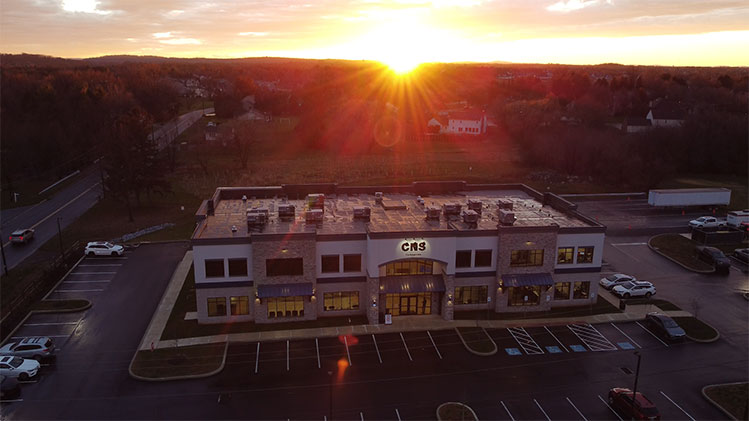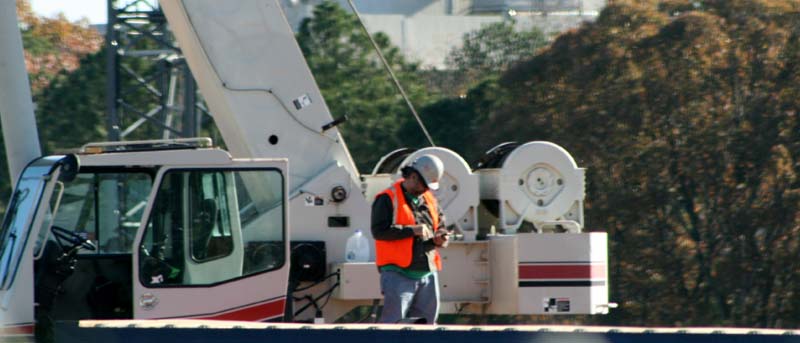Furry Friends Cause Trucking Border Delays At Canadian Border
To prevent reintroduction of rabies carried by dogs into the United States, new CDC regulations require proof of healthy pets at border crossing. Truckers who
We are a team of DOT Compliance and Licensing Professionals helping trucking and transportation companies remain safe, compliant, and profitable.
CNS or Compliance Navigation Specialists is DOT Compliance company that assists trucking and transportation companies remain DOT Compliant. We are part of a network of companies, CNS Companies, specializing in services related to the transportation, manufacturing, construction, service, education and medical industries.

A full-scale DOT Compliance Program managing a long haul carrier’s safety, compliance, licensing and more.
Learn more >>>
A DOT Compliance Program that keeps motor carriers compliant with the 6 Basic DOT Regulations required of all carriers.
Learn more >>>
Our Short-Haul/Construction Program is a full-scale program designed for private carriers that do not haul for-hire.
Learn more >>>
Our most comprehensive DOT Compliance Program, operating as your company’s off-site Safety Director or assisting your current safety personnel.
Learn more >>>
Our Non-CDL Program is a full-scale program managing safety, compliance, licensing and more for moving companies, couriers, landscapers, or any company subject to DOT regulations and does not employ CDL drivers.
Learn more >>>
Our DOT Audit Services cover a number of different types of DOT Audits that new and existing carriers will be subject to.
Our DOT Driver Services help trucking companies and carriers to stay compliant as they grow and hire more drivers.
Our DOT Vehicle Services focus on ensuring your vehicles are compliant with DOT Regulations, which is just as important as your drivers.
Our DOT Services for Special Carriers focus on companies outside of the typical motor carrier, like HAZMAT, Passenger and Bus Carriers.
CNS is part of a group of companies that offer other necessary services for the trucking and transportation industry, such as Commercial Trucking Insurance, CDL Training, Online Training Course, and even Healthcare.
Our DOT Licensing Services will cover you whether you are an existing company or just starting a trucking company. Our DOT Licensing Specialists can help you get up and running and in days with your DOT number, MC Authority, EIN, UCR, IFTA, 2290 HVUT, Fuel Taxes and can even set you up to get your Commercial Driver's License (CDL) with CNS Driver Training Center.
Our DOT Licensing Specialists will help you with every aspect of starting a trucking company. All you need to do is choose a name for your trucking company.
You will need to ensure your DOT Number, MC Authority, Vehicle Registration, etc. is all set up properly when you start your trucking business.
Our Licensing Specialists can help with all aspects of filing and renewing licenses, fuel taxes, etc.
CNS is part of a group of companies that offer other necessary services for the trucking and transportation industry, such as Commercial Trucking Insurance, CDL Training, Online Training Course, and even Healthcare.
To prevent reintroduction of rabies carried by dogs into the United States, new CDC regulations require proof of healthy pets at border crossing. Truckers who
CNS or Compliance Navigation Specialists is DOT Compliance company that assists trucking and transportation companies remain DOT Compliant. We are part of a network of companies, CNS Companies, specializing in services related to the transportation, manufacturing, construction, service, education and medical industries.
CNS Companies is a network of companies specializing in services related to the transportation, manufacturing, construction, service, education and medical industries. Our DOT Compliance division is handled by Compliance Navigation Specialists, CNS Insurance handles Commercial Truck Insurance, CDL training is managed by the CNS Driver Training Center and healthcare is managed by CNS Occupational Medicine.
We are a team of DOT Compliance and Licensing Professionals helping trucking and transportation companies remain safe, compliant, and profitable.
CNS or Compliance Navigation Specialists is DOT Compliance company that assists trucking and transportation companies remain DOT Compliant. We are part of a network of companies, CNS Companies, specializing in services related to the transportation, manufacturing, construction, service, education and medical industries.

A full-scale DOT Compliance Program managing a long haul carrier’s safety, compliance, licensing and more.
Learn more >>>
A DOT Compliance Program that keeps motor carriers compliant with the 6 Basic DOT Regulations required of all carriers.
Learn more >>>
Our Short-Haul/Construction Program is a full-scale program designed for private carriers that do not haul for-hire.
Learn more >>>
Our most comprehensive DOT Compliance Program, operating as your company’s off-site Safety Director or assisting your current safety personnel.
Learn more >>>
Our Non-CDL Program is a full-scale program managing safety, compliance, licensing and more for moving companies, couriers, landscapers, or any company subject to DOT regulations and does not employ CDL drivers.
Learn more >>>
Our DOT Audit Services cover a number of different types of DOT Audits that new and existing carriers will be subject to.
Our DOT Driver Services help trucking companies and carriers to stay compliant as they grow and hire more drivers.
Our DOT Vehicle Services focus on ensuring your vehicles are compliant with DOT Regulations, which is just as important as your drivers.
Our DOT Services for Special Carriers focus on companies outside of the typical motor carrier, like HAZMAT, Passenger and Bus Carriers.
CNS is part of a group of companies that offer other necessary services for the trucking and transportation industry, such as Commercial Trucking Insurance, CDL Training, Online Training Course, and even Healthcare.
Our DOT Licensing Services will cover you whether you are an existing company or just starting a trucking company. Our DOT Licensing Specialists can help you get up and running and in days with your DOT number, MC Authority, EIN, UCR, IFTA, 2290 HVUT, Fuel Taxes and can even set you up to get your Commercial Driver's License (CDL) with CNS Driver Training Center.
Our DOT Licensing Specialists will help you with every aspect of starting a trucking company. All you need to do is choose a name for your trucking company.
You will need to ensure your DOT Number, MC Authority, Vehicle Registration, etc. is all set up properly when you start your trucking business.
Our Licensing Specialists can help with all aspects of filing and renewing licenses, fuel taxes, etc.
CNS is part of a group of companies that offer other necessary services for the trucking and transportation industry, such as Commercial Trucking Insurance, CDL Training, Online Training Course, and even Healthcare.
To prevent reintroduction of rabies carried by dogs into the United States, new CDC regulations require proof of healthy pets at border crossing. Truckers who
CNS or Compliance Navigation Specialists is DOT Compliance company that assists trucking and transportation companies remain DOT Compliant. We are part of a network of companies, CNS Companies, specializing in services related to the transportation, manufacturing, construction, service, education and medical industries.
CNS Companies is a network of companies specializing in services related to the transportation, manufacturing, construction, service, education and medical industries. Our DOT Compliance division is handled by Compliance Navigation Specialists, CNS Insurance handles Commercial Truck Insurance, CDL training is managed by the CNS Driver Training Center and healthcare is managed by CNS Occupational Medicine.

As we slowly come out of the COVID-19 pandemic, the construction and landscaping industries are poised to start the spring season with many new safety requirements.
Safety requirements are not new to these industries as they must manage OSHA rules and, for those hauling equipment and supplies that require a commercial driver’s license (CDL), they must deal with federal Department of Transportation (DOT) requirements.
Below we cover important safety requirement deadlines and many of the OSHA and DOT regulations that construction workers and landscapers are required to meet.
After nearly a year of the COVID-19 health emergency, many states that reopened their State Driver Licensing Agencies (SDLAs) have only resumed limited operations.
As a result, many commercial driver’s license (CDL) and commercial learners permit (CLP) holders were often unable to renew their CDLs and CLPs or provide medical certificates to their state driver licensing agencies.
Similarly, many physical exam sites were dealing with limited operations or backlogs, preventing drivers from scheduling appointments for their federally required medical card physicals.
For this reason, the Federal Motor Carrier Safety Administration (FMCSA) implemented and extended a waiver that now permits, but does not require, states to extend the validity of CDLs and CLPs due for renewal since March 1, 2020. It also waives the requirement that drivers have a medical exam and certification, provided they have proof of a valid medical certification and any required medical variance issued for a period of 90 days or longer and expired on or after Dec. 1, 2020.
This deadline is quickly approaching, and many state driver licensing offices and physician facilities are still experiencing backlogs or limiting in-person visits.
It is now time to make sure employees are renewing their CDLs and medical cards, which means getting a DOT physical, especially if the medical card has been expired before Dec 1, 2020.
Drug and alcohol use in the construction and landscaping industries is dangerous. Companies need to create an atmosphere where there is a desire to employ staff who will keep the workplace safe.
All staff who have a commercial driver license and drive a commercial motor vehicle are required by the Department of Transportation to be in a DOT drug and alcohol testing program for pre-employment, random, post-accident, reasonable suspicion, and return-to-duty testing.
This includes:
Some companies have only a DOT testing program and decide to internally manage it themselves, but there are high hidden costs in doing so.
Given the complexity of the DOT’s drug and alcohol testing and record-keeping requirements, many companies hire a Drug & Alcohol Consortium Administration Services (C/TPA) to help manage their DOT and non-DOT drug testing programs.
This is where Compliance Navigation Specialists can help. Our experts ensure that all DOT rules and regulations are followed, including pre-employment testing and the implementation of random drug tests for you and your drivers. We take all the necessary steps and precautions to keep you and your drivers compliant with the DOT drug and alcohol testing requirements.
Reasonable suspicion drug testing determinations are sometimes the most challenging aspects of a drug-free workplace program, yet can have a profound impact on safety, well-being and productivity.
With spring approaching, the rise of the opioid epidemic, ongoing issues with alcohol abuse, marijuana legalization across the nation, and changes to DOT testing regulations, managers need to refresh themselves on the requirements and the importance of documentation to keep the workplace safe.
Reasonable suspicion is described as a set of circumstances that give you reason to conduct a “fitness-for-duty” assessment of an employee based on objective observations.
Reasonable suspicion testing is used to determine that alcohol or drugs are not the cause of the observed behavior or appearance. Drug testing is a mechanism to determine if the employee has used a prohibited drug; regardless of when, or what amount.
The training includes one hour on signs and symptoms associated with drug use and one hour on signs and symptoms associated with alcohol misuse, covering the physical, behavioral, speech, and performance indicators of probable workplace misuse.
When it comes to employment in the construction industry, there are many different types of exams and testing that may be required under OSHA rules. The most common physical exams include:
Beyond exams, there are important occupational health tests that may be required for employment under OSHA 29 CFR, which include:
Audiometric testing is a test of a person’s ability to hear sounds and assists in monitoring an employee’s hearing over time and is OSHA required if the work environment provided by the employer meets certain guidelines.
An audiometric testing follow-up program should indicate whether the employer’s hearing conservation program is preventing hearing loss.
Annual audiograms must be provided within 1 year of the baseline test. It is important to test workers’ hearing annually to identify deterioration in their hearing ability as early as possible. This enables employers to initiate protective follow-up measures before hearing loss progresses.
A pulmonary function test or respiratory test is OSHA-mandated to determine if an employee can safely and effectively wear a respirator to protect them against breathing airborne contaminants.
For example, according to the Occupational Safety and Health Administration (OSHA), more than 2.3 million U.S. workers are currently exposed to crystalline silica and high levels of silica exposure found in:
On June 23, 2020: “medical surveillance” or silica respiratory testing became twice as strict with workers exposed to the “action level” at or above 25 micrograms for 30 or more days a year (previously, medical surveillance was enforced at the “permissible exposure limit,” at or above 50 micrograms).
Coming June 23, 2021: Obligations for engineering controls goes into effect as employers will put into place work practices to reduce and maintain employee exposure to respirable crystalline silica to or below limits.
Before your employees use a respirator or are fit-tested, they must be medically evaluated and cleared by a licensed healthcare professional using a “Respirator Medical Evaluation Questionnaire.”
Beyond the respirator medical evaluation, a spirometry breathing test shows how well you can move air in and out of your lungs. Periodic spirometry testing can be used to detect such accelerated losses.
Under OSHA 29 CFR PFT, spirometry testing is required in conjunction with the respirator fit test under certain circumstances to measure respiratory function.
CNS can assist with your Occupational Medicine needs, no matter the size of your company. Our goal is to keep workers safe and healthy on the job, allowing you to continue the production that keeps your business running.
Currently, we also offer Mobile Occupational Medicine Services in Pennsylvania, Delaware, Ohio, New Jersey, Maryland, and New York, and we are always expanding.
Any of our employee screening services can be administered individually or bundled together to be made more affordable.
Our knowledgeable Occupational Health Examiners are focused on providing the best patient care possible with an end goal of long-term health and wellness for workers and employers.
For more information, contact us at 888.260.9448 or info@cnsprotects.com.

To prevent reintroduction of rabies carried by dogs into the United States, new CDC regulations require proof of healthy pets at border crossing. Truckers who

This means future regulations will “become clearer” or “stuck in the courts” for years. On June 28, 2024, the U.S. Supreme Court overturned the Chevron

ATRI’s Research Advisory Committee (RAC) selected a diverse set of research priorities designed to address some of the industry’s most critical issues including workforce development,

CNS can help with our Roadside & Incident Report Management service where a team of DOT Compliance Specialists will assess the Department of Transportation safety records
Our DOT Compliance Programs ensure it is your top priority and keeps your business running.
Receive the latest transportation and trucking industry information about FMCSA and DOT Audits, Regulations, etc.

To prevent reintroduction of rabies carried by dogs into the United States, new CDC regulations require proof of healthy pets at border crossing. Truckers who

This means future regulations will “become clearer” or “stuck in the courts” for years. On June 28, 2024, the U.S. Supreme Court overturned the Chevron

ATRI’s Research Advisory Committee (RAC) selected a diverse set of research priorities designed to address some of the industry’s most critical issues including workforce development,
Join our monthly newsletter and stay up-to-date on trucking industry news and receive important compliance and licensing tips.
Join our monthly newsletter and stay up-to-date on trucking industry news and receive important compliance and licensing tips.